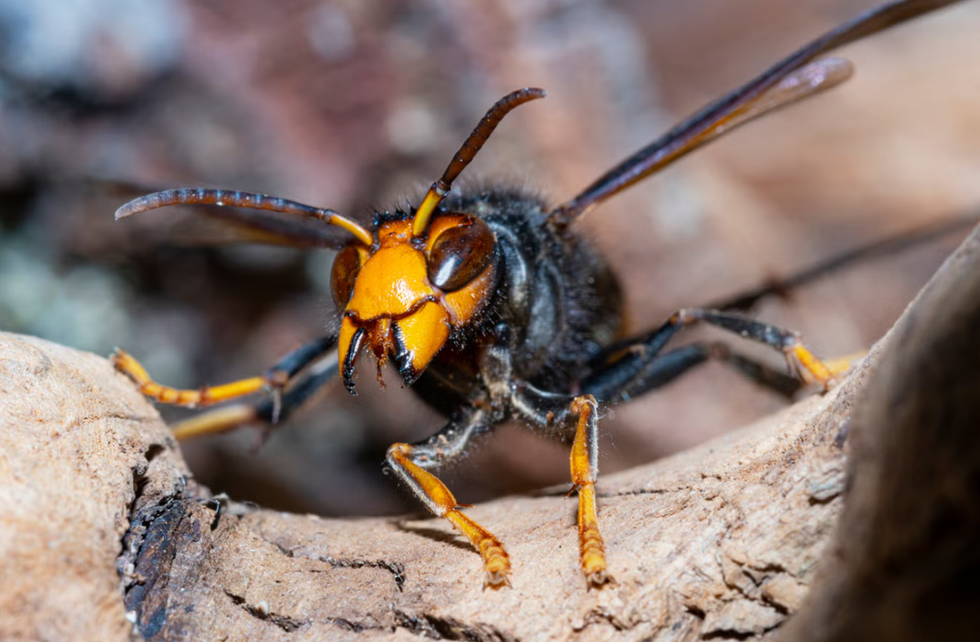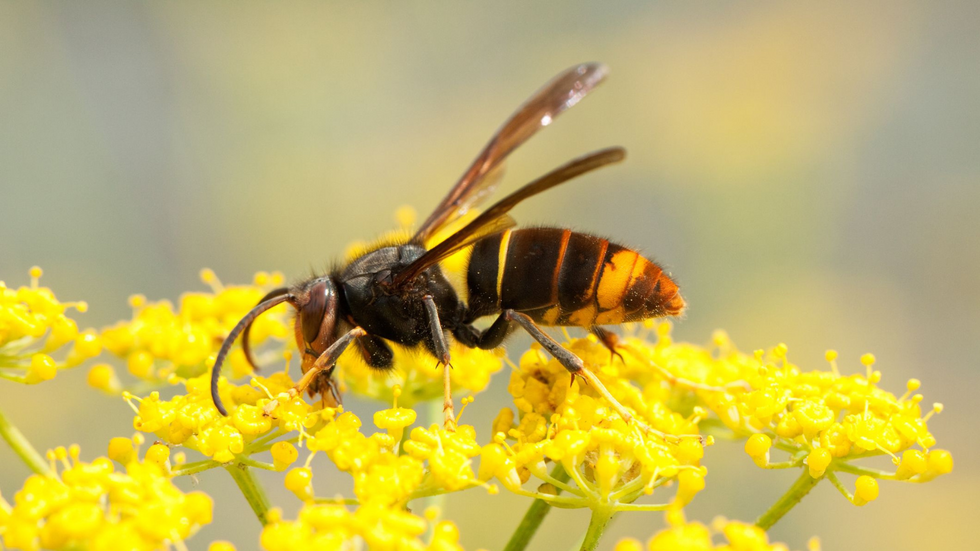'Be viligant!' Urgent warning as killer Asian hornets pose 'significant threat' - how to spot them in your garden
One Asian hornet can hunt and consume up to 50 bees in a day
Don't Miss
Most Read
Trending on GB News
Britons have been warned following unprecedented early sightings of yellow-legged hornets (also known as Asian hornets or Vespa velutina) in Jersey, Channel Islands.
This has led to fears that record numbers could try to establish nests in the UK this year.
These hornets, according to the Animal and Plant Agency, pose a "significant threat" to our honey bees and pollinators.
Indeed, one Asian hornet can hunt and consume up to 50 bees in a day. Bees, as described by the UN Environment Programme, are our "greatest pollinators" - "part of the biodiversity on which we all depend for our survival".

Asian hornets pose a 'significant threat' to honey bees and pollinators
GETTY IMAGES
These sightings of Asian hornets also conjure up fears for public health, as - like bees - their stings may cause allergic reactions. In a worst-case scenario, bee and wasp venom allergies can result in anaphylaxis, which can be fatal.
To identify an Asian hornet in your garden, these killer insects are between 25-30mm in length, have yellow-tipped legs, an entirely dark brown or black body, and yellow banding on the fourth segment of the abdomen - but should not be confused with European hornets, Giant wood wasps or wasps.
The British Beekeepers Association (BBKA) told Britons to "report it immediately" if they spot a yellow-legged Asian Hornet or a nest.
They said: "Please include an image wherever possible, as written descriptions are much less effective. Without an image, sightings are much less likely to be followed up."
Using the slogan "See it, snap it, send it", the BBKA advised: "The best way to report any sightings is via the 'Asian Hornet Watch' app.
"The home screen of the App allows users to check similar species and report a sighting.
"A photo is requested as key to identification. The date and location are auto-completed, and brief comments can be included.
"A reminder about personal safety is also included. Reporting can lead to investigation and nest destruction, which is vital for eradication."
Britons can also report sightings of the yellow-legged hornet using the reporting form managed by the UK Centre for Ecology and Hydrology.
In light of the unprecedented levels of sightings in Jersey, John De Carteret, a founding member of the Jersey Asian Hornet Group, stated: "The first queens were more than two weeks early this year. We're obviously concerned."
LATEST DEVELOPMENTS

As of April 11, there were 262 queen Asian hornets recorded in Jersey
GETTY IMAGES
There were 262 queen Asian hornets recorded in Jersey by April 11, a year-on-year increase of 1,090 per cent.
"When we reach 266 queens, we will equal the total from 2024 - and that figure wasn't reached until June 25," he said to The Guardian.
Kate Wilson, head of the National Bee Unit, said: "Thanks to increasing reports to the app and online, it is not unexpected that sightings may occur earlier in the year. We encourage the public to remain vigilant and continue to report any potential sightings to us."
First spotted in the UK in 2016, there were only a handful of Asian hornet sightings between their initial sighting and 2022. However, in 2023, a whopping 73 nests were destroyed, with sightings peaking in September.
Since the start of the year, the Department for Environment, Food and Rural Affairs has confirmed two UK sightings in January and March, each resulting in the capture of a single hornet.








